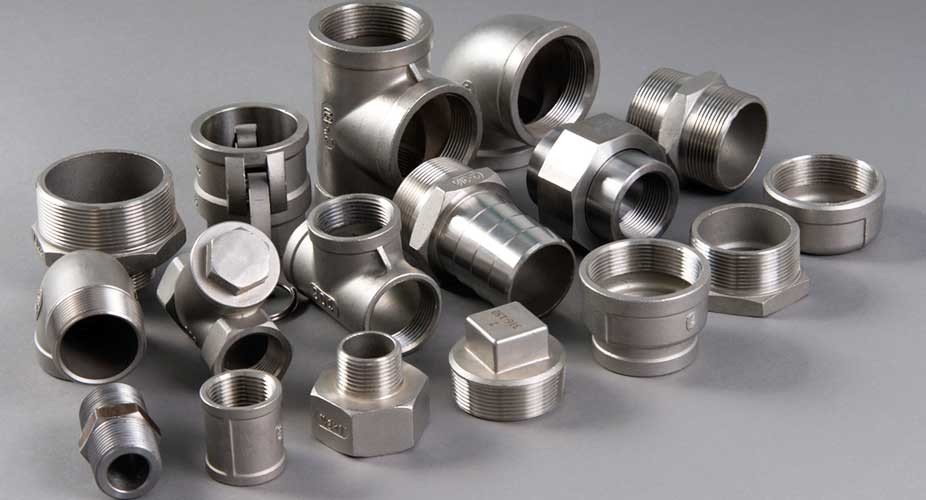
In the complex world of industrial piping systems, every component must deliver top-tier performance under extreme conditions. Among these components, stainless steel forged fittings play a crucial role in ensuring reliable flow, leak prevention, and long-term durability. Often overlooked, these fittings serve as the foundation of strong, efficient, and safe piping networks across various sectors, including oil & gas, power generation, chemical processing, and shipbuilding.
This blog explores why SS forged fittings are considered the backbone of industrial piping systems, their advantages, and why industries rely on them for critical operations.
🔧 What Are Stainless Steel Forged Fittings?
Stainless steel forged fittings are pipe connectors manufactured through the forging process, where metal is shaped using compressive force. Forging enhances the mechanical properties of stainless steel, improving its strength, impact resistance, and grain structure.
These fittings are available in various types, such as:
-
Elbows
-
Tees
-
Couplings
-
Unions
-
Bushings
-
Adapters
-
Caps
-
Plugs
They come in different pressure ratings like Socket Weld (SW) and Threaded (NPT/BSP), typically ranging from Class 2000 to 9000.
⚙️ Why Are Forged Fittings Preferred Over Other Types?
Forged fittings are favored over cast or welded alternatives for several reasons:
✅ Superior Strength
Forging aligns the grain structure of stainless steel, creating a denser, tougher material. This is essential in high-pressure and high-temperature applications, where any weakness can lead to system failure.
✅ Leak Prevention
Because of their strong construction and tight tolerances, SS forged fittings provide leak-proof connections, which are vital for handling hazardous fluids or gases.
✅ Corrosion Resistance
Stainless steel, especially grades like 304 and 316, offers excellent resistance to corrosion, oxidation, and pitting — even in aggressive environments like chemical plants or offshore rigs.
✅ Dimensional Accuracy
Forged fittings offer precise dimensions and uniformity, making them easy to install and compatible with existing piping systems.
🏭 Key Industries That Rely on SS Forged Fittings
1. Oil and Gas Industry
In upstream, midstream, and downstream operations, the integrity of pipelines is crucial. Stainless steel forged fittings are used in drilling rigs, refineries, and gas plants for handling flammable and corrosive substances.
2. Chemical and Petrochemical Plants
These facilities require resistance to harsh chemicals and temperature fluctuations. Forged fittings provide both chemical resistance and strength to withstand aggressive fluids.
3. Power Generation
From thermal to nuclear power plants, piping systems transport steam and water under high pressures. Forged fittings ensure long-lasting, high-performance connections.
4. Food and Beverage Processing
Hygienic piping systems depend on stainless steel due to its non-reactive surface. Forged fittings ensure sanitary, contamination-free connections.
5. Marine and Shipbuilding
Forged fittings resist saltwater corrosion and are commonly used in shipboard piping, desalination plants, and offshore platforms.
🧪 Types of Stainless Steel Used in Forged Fittings
-
SS 304: General-purpose stainless steel with good corrosion resistance and weldability.
-
SS 316: Enhanced corrosion resistance, particularly against chlorides and marine environments.
-
SS 310: Excellent high-temperature strength.
-
SS 347: Used in high-temperature and highly corrosive environments due to its stabilization with columbium.
The choice of material depends on the application’s temperature, pressure, and fluid type.
🔩 Common Forged Fittings and Their Functions
| Fitting Type | Function |
|---|---|
| Elbows | Change direction of flow |
| Tees | Branch flow in three directions |
| Couplings | Join two pipes together |
| Unions | Allow easy disconnection |
| Plugs & Caps | Close the end of a pipe |
| Bushings | Reduce the pipe size |
Each type of fitting is vital in shaping the system layout, redirecting flows, or terminating pipe ends safely.
🛡️ Safety, Durability, and Long-Term Value
Stainless steel forged fittings are designed to endure stress, vibration, thermal expansion, and corrosive elements. Their low maintenance requirements and extended service life make them a cost-effective solution for industries focused on long-term reliability and operational safety.
📌 Selection Tips for Buyers
-
Check ASTM and ASME Standards: Ensure fittings comply with specifications like ASTM A182, ASME B16.11.
-
Verify Pressure Rating: Match fittings to system pressure requirements (Class 3000/6000/9000).
-
Choose the Right Grade: Use SS316 for marine and chemical environments; SS304 for general use.
-
Source from Trusted Suppliers: Quality control and certification are vital for safety and longevity.
✅ Conclusion
From pressure control to chemical handling, stainless steel forged fittings are the unsung heroes of industrial piping systems. Their unmatched strength, corrosion resistance, and dimensional accuracy make them indispensable in critical infrastructure. Whether it’s a power plant, refinery, or water treatment facility, choosing the right SS forged fittings ensures efficiency, safety, and long-term performance.